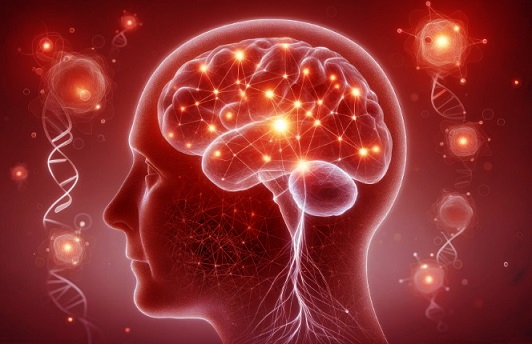Nikhil Prasad Fact checked by:Thailand Medical News Team Sep 17, 2025 5 months, 6 days, 22 hours, 11 minutes ago
Medical News: A breakthrough look at an old enzyme
Researchers from the University of Lodz (Poland) and the Military University of Technology (Warsaw, Poland) have shed new light on how the enzyme acetylcholinesterase (AChE) could hold the key to fighting Alzheimer’s disease. For decades, doctors have used drugs like donepezil, rivastigmine, and galantamine to slow memory loss by boosting acetylcholine, a brain chemical essential for thinking and memory. However, these treatments only offer temporary relief. According to this
Medical News report, the latest research shows that AChE has a darker side—it not only breaks down acetylcholine but also helps harmful amyloid proteins clump together, a hallmark of Alzheimer’s disease.
 Acetylcholinesterase Shown as Key Target in Fighting Memory Loss in Alzheimer
Why this matters
Acetylcholinesterase Shown as Key Target in Fighting Memory Loss in Alzheimer
Why this matters
Alzheimer’s disease is not caused by a single problem but by a chain of destructive events—amyloid buildup, tau tangles, oxidative stress, brain inflammation, and loss of brain cells. Current drugs do little to stop this downward spiral. By focusing on AChE, scientists believe we may finally have a way to tackle two problems at once: improving brain communication while blocking the toxic amyloid clumps that destroy neurons.
Dual site inhibitors and multitasking drugs
One of the most promising approaches is the creation of “dual-site inhibitors.” These advanced compounds can block both the enzyme’s active center and its peripheral site. The active center is where acetylcholine is broken down, while the peripheral site appears to trigger amyloid proteins to stick together. Blocking both sites at the same time may not only sharpen memory but also slow the actual progression of Alzheimer’s. Researchers are also designing multi-target-directed ligands (MTDLs), which are “all-in-one” drugs able to fight several disease processes at once—reducing oxidative stress, calming inflammation, balancing brain metals like copper and zinc, and stopping amyloid buildup.
Natural products and hybrid molecules
Another exciting area involves natural plant compounds such as curcumin from turmeric or flavonoids found in fruits and vegetables. When these are chemically combined with existing drugs, they form “hybrid ligands” that carry both natural protective effects and strong cholinesterase-blocking power. Some of these hybrid designs also act as metal chelators, helping mop up metals in the brain that speed up amyloid and tau damage.
Advanced drug design technologies
Modern tools are speeding up discoveries. Artificial intelligence now screens millions of chemical compounds in record time to find the best candidates. Powerful imaging methods, including X-ray crystallography and cryo-electron microscopy, allow scientists to actually see how these drugs interact with AChE at the atomic level. Tests in human stem-cell derived brain models give an early picture
of how effective and safe these drugs could be before moving into clinical trials.
The road ahead
While these findings are promising, challenges remain. Many drug candidates work well in the lab but fail to cross the brain’s protective barrier or cause unwanted side effects. To succeed, future treatments must be powerful yet safe, and able to reach the brain in therapeutic doses. Still, this research signals a real shift—from treating symptoms to designing disease-modifying drugs that can truly change the course of Alzheimer’s.
In conclusion, the study highlights that acetylcholinesterase is not just a target for easing symptoms but a central player in Alzheimer’s disease itself. By aiming at both its enzymatic and amyloid-promoting roles, scientists are now closer than ever to developing drugs that could both improve memory and slow disease progression. If successful, these strategies could redefine how doctors manage Alzheimer’s, offering patients and families longer periods of independence and better quality of life.
The study findings were published in the peer reviewed International Journal of Molecular Sciences
https://www.mdpi.com/1422-0067/26/17/8726
For the latest on Alzheimer, keep on logging to Thailand
Medical News.
Read Also:
https://www.thailandmedical.news/news/phytochemicals-found-in-basil-can-shield-the-brain-from-alzheimer-and-dementia
https://www.thailandmedical.news/news/phytochemical-from-mulberry-shows-promise-against-alzheimer-disease
https://www.thailandmedical.news/news/thailand-doctors-discover-neuroprotective-power-of-indian-trumpet-tree-against-alzheimer-s-cell-damage
https://www.thailandmedical.news/articles/alzheimer,-dementia-
